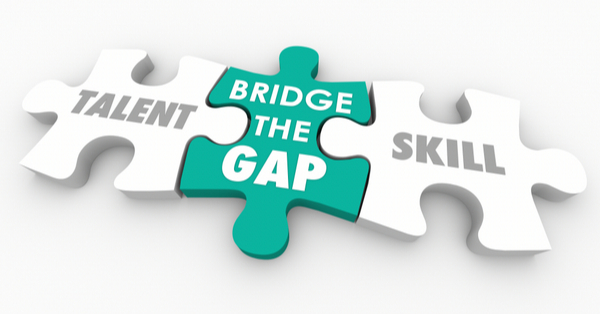Edition: September 2nd, 2021
Curated by the Knowledge Team of ICS Career GPS

- Excerpts from article by Sharad Mehra, published on peoplematters.in
The traditional ways of hiring and working have been demolished. Instead, the new reality is more inclined towards a multidisciplinary approach, agile & creative mindsets, and future leaders who take risks, see failures as a learning opportunity and pull their teams up.
A recent survey by NASSCOM has revealed that more than 50% Indian professionals will have to upskill themselves to match the changing dynamics of the industry.
Organisations have re-discovered their assets — not ambitious business strategies, but workforce who power growth and innovative ways of improving the business and strategies.
The most sought-after skills in any fresher or professional today are:
- Adaptability
- Reasoning
- Critical thinking
- Agility
- Risk-taking
- Strong communication
These skills will outlast any change. With these, a professional can slip into any role or multiple roles with immense ease.
Little wonder then, that organisations across the world are giving greater emphasis to people development initiatives, upskilling, and honing soft skills and life skills.
A McKinsey study found that the demand for emotional skills across all industries will grow. All of us have been blessed with these skills. We just need to hone them.
You can hone your emotional skills through these steps:
- Set a daily routine and follow it with great discipline
- Make sure that you have a mixed routine where work and fun create a positive setting and give you an extra energy boost
- Make a daily priority list and simply follow it
- Be mindful of yourself and others around you, and maintain a daily journal which assists your self-reflection and gives insights
- Have a gratitude list which will ensure that you appreciate the ‘smaller’ things in life and grow as a person
These count in building a positive persona which is received warmly at the workplace.
A survey suggests that top CEOs and recruiters consider teamwork to be a vital skill. They also consider communication and time management to be invaluable employability skills.
The kind of employees that are in high demand today are:
1. Open, Adaptive and Resilient
Life is an unpredictable adventure with challenges and rewards. Your attitude in this journey is the critical differentiator that will define your learning, experiences and career trajectory. Being flexible and resilient to the hard knocks of life will make you a valuable employee and human being.
2. Role Juggler and People’s Person
The age of just being good with a single role are over. Now is the age of the multidimensional-professional. How you behave and deal with your colleagues and peers also matters a lot.
Tip: A person with a positive attitude, team spirit, supportive outlook, respect for others, strong listening ability, and a good sense of humour is considered a huge plus.
3. Problem Solver and Good Communicator
When faced with a daunting task or challenge, how do you respond to it? Your outlook and attitude matter. Do you see this as an obstacle, or do you have a solution-oriented approach?
Tip: Keep information-sharing and communication simple and transparent. You will be always appreciated for it.
4. Agile Learner with Respect for Deadlines
The future is about your ability to be agile in picking skills and competencies that are relevant. No formal education set-up can prepare you for an event that cannot even be imagined now.
Learn what you need to—whether technical or life skills. Upskilling is a way of life.
And yes, discipline will always count so make sure you stick to all your deadlines by making a schedule.
Degrees will continue to have relevance, but the era of a comprehensive professional has already dawned.
Organisations will continue to invest in people and focus on learning and development. Do not forget that the greatest teacher and lifelong mentor will always be life. Embrace the journey with all its challenges, fearlessly.
…
(Disclaimer: The opinions expressed in the article mentioned above are those of the author(s). They do not purport to reflect the opinions or views of ICS Career GPS or its staff.)
Like this post? For more such helpful articles, click on the button below and subscribe FREE to our blog.




